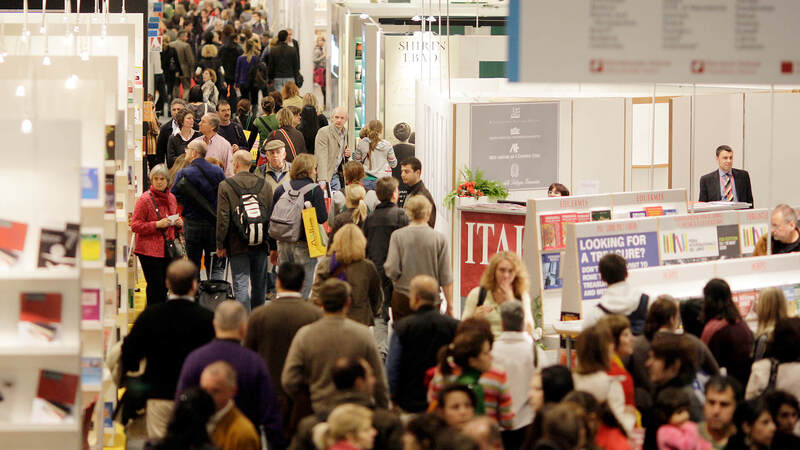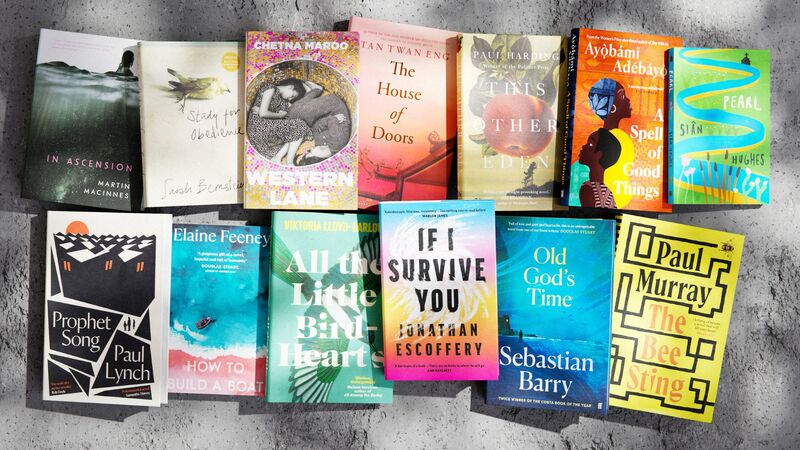You are viewing your 1 free article this month. Login to read more articles.
Chinese market suffering from 'major' reduction in ISBNs, warns Nurnberg at FBF
The Chinese marketplace is “suffering" from the government’s continued crackdown on the number of ISBNs being issued to publishers of foreign writers, Frankfurt Book Fair attendees were told in a session on “Publishing and the Rights Trade in Covid World” from agent Andrew Nurnberg.
During an online session on Tuesday (13th October) with publishing and rights consultant Diane Spivey, Nurnberg said his agency was doing its best to support authors’ sales in China, extending to intervening in books marketing on social media. However, he said the Chinese government “is not happy with so many foreign books being translated by publishers in their country”.
“The first hit [by the pandemic] was [in] China where virtually from one day to the next bookshops were closed and footfall dropped to nothing, but by now already bookshops are open, as is happening across most of our territories now including UK and America,” said Nurnberg. “While these publishers are pushing their books as well as they can, we are taking exceptional measures ourselves to promote authors – our Beijing office is putting out all sorts of material on TikTok and WeChat, and like that we’re helping with marketing that will ultimately help sell a lot of books.”
He continued: “China unfortunately is suffering right now from something besides the effects of Covid. It is actually suffering from a major reduction in the number of ISBN numbers that the government is giving to publishers. These [ISBNs] are controlled by the government in China and they are being reduced because the Chinese government is not happy with so many foreign books being translated by publishers in their country and so few Chinese authors being published outside China. There is also something of a trade war going on. So this is really not very good for our authors out there.”
Nurnberg's observations build on testimony from other publishers in August, when agents and rights professionals expressed concern over the rising political tensions between the UK and China which could put the brakes on the volume of deals done in the world's fastest-growing major economy.
More positively, Nurnberg said the country was leading the way in audio, describing enthusiasm for the format to be only “building and building”, as multiple voices are utilised for different characters in individual recordings alongside background music. Such growth–as evidenced in the UK also–is due to spread to areas of eastern Europe, too, with Storytel due to reach Romania next year.
Markets that have been hit hard by the pandemic include Scandinavia, Nurnberg said, estimating sales in Sweden have contracted 32%, as well as Taiwan, thanks to closures for the bookshop chain Eslite. Russia also has “had problems”, he said, because of distribution: “There are as many as 11 time zones in Russia: how do you get the books there if people can’t work and people can’t move?”
It is not all doom and gloom, however, Nurnberg emphasised. Markets such as Spain and France are rallying, he suggested. Although sales across the tills went down “considerably” in Spain, on St George’s Day– the holiday in which women give books to men for Valentine’s Day, accounting for roughly 7% of all sales across the year in one day–he said “normally sales are enormous and they were pretty big this year”. France he said was also “rebounding”, and in his estimation “doing very well”.
Considering the difficulties in selling rights internationally right now, in terms of current constraints on working practices necessitating remote working, Nurnberg said it was unlikely to change how his agency does business in the future, beyond opting for alternative methods of transport over flying for environmental reasons. He spoke of Zoom fatigue and the importance of face-to-face meetings to foster and grow relationships, and the unbeatable hothouse of the Frankfurt Book Fair for facilitating deals. "We need the foreign travel to get to know new people and to get to know people we’ve met before and want to know better. We’re all working remotely for the time being, but the minute we can meet in offices again, it will be fantastic," he said.
"I asked all my colleagues, 'How do you find it [working from home?' and the unanimous reaction has been: 'It's fantastic in that I don’t have to get up so early, I can go straight to my desk, I don’t waste time travelling'. And then: 'But I really, really miss being in the office.' I think we need to be together as a team. We spark one another. It’s totally different when you’re together."
He added of the book fair's online platforms: "I don’t use them. But I believe they’re there to deliver information. Of course you need the hothouse of FBF; that’s what is so wonderful. Nothing is better than the buzz of the fair. You don’t get a buzz from any platform, you get a buzz from meeting people."



















